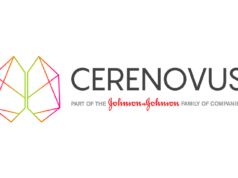Patients newly diagnosed with glioblastoma multiforme (GBM) and treated with an experimental cancer vaccine made from the patient’s own tumour in addition to standard of care lived longer compared to those who received standard of care alone, according to new results from a study involving Northwestern Medicine researchers and released on 1 July.
Glioblastomas are fast growing tumours that invade normal brain tissue. The disease is often resistant to treatments such as chemotherapy and radiation and median survival is approximately 15 months from the point of first diagnosis.
“Improving the survival for GBM patients is an important goal for many of us here at Northwestern,” says the study’s principal investigator Andrew Parsa, who is chair of neurological surgery at Northwestern Memorial Hospital and the Michael J Marchese professor and chair of the department of neurological surgery at Northwestern University Feinberg School of Medicine. “This brain cancer does not discriminate. It affects all ages, genders and races and less than 5% of glioblastoma patients survive five years. With new research and studies like this, we hope to one day write a different ending to the story by turning this into a chronic disease – one that can be treated with medication.”
Typically, patients newly diagnosed with a glioblastoma undergo surgery to remove their tumour followed by radiation and temozolomide, an oral chemotherapy drug. This phase 2 single-arm trial consisted of 46 patients and added a vaccine made from their tumour to their treatment. The vaccine is unique to each patient and is engineered to trigger an immune system response to kill tumour cells that may remain following surgery.
Results showed the patients who added the vaccine to their treatment lived longer. More specifically, 50% of the patients enrolled in the trial lived for two years, an encouraging result for a cancer that often kills patients within one year. The patients enrolled in this trial were treated at eight centres across the USA including Northwestern Memorial.
Median overall survival for patients enrolled in the trial is 23.8 months. For the standard of care alone, median overall survival rate is 14.6 months. The trial also monitored each patient’s progression-free survival, which is the length of time a patient lives with the tumour controlled. Vaccine treated patients had a median progression-free survival of nearly 18 months, approximately two- to three-times longer than patients treated with radiation and temozolomide alone. In addition, 22% of patients enrolled in the trial were alive at 24 months and continue to be monitored.
Based on the positive phase 2 trial results, Agenus Inc, the biopharmaceutical company developing the vaccine, is exploring partnerships for a randomised, phase 3 trial. A successful trial could lead to the vaccine potentially being approved to treat brain tumours, making it one of only a few approved therapeutic cancer vaccines and treatments for GBM patients.
While new findings such as this one continue to extend the lives of patients with glioblastoma, for the moment, it remains one of the most dreaded diagnoses, which is why Parsa, co-leader of the Translational Research in Solid Tumours Programme at the Robert H Lurie Comprehensive Cancer Center of Northwestern University, and other Northwestern Medicine researchers are also studying the vaccine for GMB patients whose tumour returns. The phase 2 recurrent and newly diagnosed trials are being led by Parsa and primarily have been supported through funding from the American Brain Tumor Association, Accelerated Brain Cancer Cure, National Brain Tumor Society and National Cancer Institute Special Programs of Research Excellence.
“A glioblastoma is the most common primary malignant brain tumour and affects up to 17,000 Americans annually,” says Jeffrey Raizer, co-director of the Northwestern Brain Tumor Institute, director of medical neuro-oncology at the Lurie Cancer Center and the principal investigator for the study at Northwestern Memorial. “Vaccine therapy has the potential to offer a safer and less toxic cancer treatment to patients. While conventional therapies sometimes cause debilitating side effects, this treatment is simply a series of injections that is increasing the survival of patients in early trials. Importantly, it can be combined with other therapies allowing us to attack these tumours from different approaches.”













